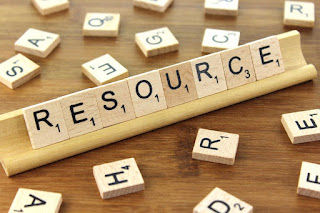Economic crises of 1991, INDIA
What
was the Economic Crisis of 1991 ?
In
1990 and 1991 India faced an Economic Crisis due to which the economy
lost its stability. There were not enough foreign exchange to do
imports.
India
was at the verge of enlisting in the list of Defaulters.
What
lead to this Crisis ?
- India was a closed economy before 1991 which means that foreign Companies could not trade in the country.
- License permits were there which limited the product and reach of the companies.
- The government was controlling most of the economic activities which over burdened the government.
- More expenses than income.
- Limited and extinguishing foreign exchange.
- Gulf war which hiked the Oil prices.
- Unstable political activity.
- Inability of government to take solid actions.
What
was happening at that time ?
India
was under crises. The foreign exchange almost extinguished. The
country was counting pressurised by international agencies like IMF
(International
Monetary Fund)
to bring reforms.
Due
to Gulf
War
(the war in gulf countries of Iraq, Kuwait, Saudi Arabia, Israel &
the Persian gulf) the oil prices hiked. The oil worth Rs 500 Crores
was now sold at Rs 1,200 Crores. This made oil crises.
India
seeked help from IMF in which 80% share belonged to America hence
America demanded India to allow its fighter jets to refuel in India
during the gulf war. Accepting this would mean that India is directly
engaging in the Gulf war from American sides. However India accepted
this offer and $1.2 Billion were arranged for India next day.
But
this support from IMF was not enough to stabilise the economy hence
the then Governor of RBI "S. Venkatramanan" suggested
"Dr. Manmohan Singh" (Financial Advisor) to take
loans with Gold Mortage. Rajiv Gandhi & Yashwant Sinha
(Finance Minister) gave their approval for the same. The 1st
Package of 20 tonne Gold was Mortaged at Bank of Switzerland and the
2nd package of 47 tonne Gold was Mortaged in Bank of England and Bank
of Japan.
By
Now the previous Government of Chandrasekhar had collapsed and
P.V. Narsimha Rao became the next Prime Minister on 21 June,
1991 in the middle of the Economic Crisis which already presented him
a huge challenge. He appointed Dr. Manmohan Singh as his new
Finance Minister.
In
July, 1991 this new government initiated economic Liberalisation and
brought Economic reforms in the Country. Which proved to be a cure
for the depleting Indian Economy.
What
Changes were brought ?
- Tax Reforms The Income Tax which was 51% earlier was was decreased to 30% and the minimum Taxable Income was also increased.
- Rationalisation of Custom duties and bring down the peak Tariff duties to Lower levels.
- Reduction in various subsidies.
- Reduced Tax rates on profits.
- Liberalisation was done to remove all unnecessary control & restrictions.
- Abolition of Industrial Licensing
- Contraction of Public Sector The number of reserved public sector industries were reduced from 17 to 3.
- Reforms in small scale sector.
- Concession in MRTP act
- Foreign exchange reforms
- Trade Policy Reforms
- Privatisation & GpobaliGlobal
- Liberalisation in Import licensing
- Rationalisation of tariff structure
- Foreign exchange management reforms.
- Reduced Bank rates.
- Reduced Cash Reserve Ratio (CCR) & Statutory Liquidity Ratio (SSR).
What
were the achievements of these Economic reforms ?
- Rise in GDP growth.
- Control of Inflation.
- Rise in foreign exchange reserves.
- Rise in inflow of foreign capital.
- Rise in Integration of world economy.
- Rise in Competitiveness in Industrial Sector.
- Fall in Deficit.
Some
interesting facts :
- In June, 1991 India had less than $1 Billion foreign reserve which was just enough to meet 3 weeks of Imports.
- At that time in 1991 the Indian Currency exchange rates were 18 Rupees for 1 Dollar.
- STD Booth were one of the Major Small scale business.
- Before economic reforms there were only 5 Lakh Landlines in India.



Comments
Post a Comment